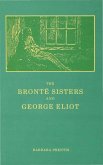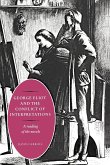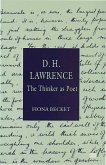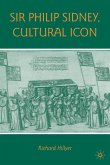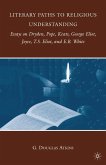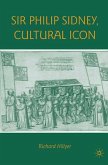One climbed to the very top of the social ladder, the other chose to live among tramps. One was a celebrity at twenty-three, the other virtually unknown until his dying days. One was right-wing and religious, the other a socialist and an atheist. Yet, as this ingenious and important new book reveals, at the heart of their lives and writing, Evelyn Waugh and George Orwell were essentially the same man.
Orwell is best known for Animal Farm and 1984 , Waugh for Brideshead Revisited and comic novels like Scoop and Vile Bodies . However different they may seem, these two towering figures of twentieth-century literature are linked for the first time in this engaging and unconventional biography, which goes beyond the story of their amazing lives to reach the core of their beliefs-a shared vision that was startlingly prescient about our own troubled times.
Both Waugh and Orwell were born in 1903, into the same comfortable stratum of England's class-obsessed society. But at first glance they seem to have lived opposite lives. Waugh married into the high aristocracy, writing hilarious novels that captured the amoral time between the wars. He converted to Catholicism after his wife's infidelity and their divorce. Orwell married a moneyless student of Tolkien's who followed him to Barcelona, where he fought in the Spanish Civil War. She saved his life there-twice-but her own fate was tragic.
Waugh and Orwell would meet only once, as the latter lay dying of tuberculosis, yet as The Same Man brilliantly shows, in their life and work both writers rebelled against a modern world run by a privileged, sometimes brutal, few. Orwell and Waugh were almost alone among their peers in seeing what the future-our time-would bring, and they dedicated their lives to warning us against what was coming: a world of material wealth but few values, an existence without tradition or community or common purpose, where lives are measured in dollars, not sense. They explained why, despite prosperity, so many people feel that our society is headed in the wrong direction. David Lebedoff believes that we need both Orwell and Waugh now more than ever.
Unique in its insights and filled with vivid scenes of these two fascinating men and their tumultuous times, The Same Man is an amazing story and an original work of literary biography.
Orwell is best known for Animal Farm and 1984 , Waugh for Brideshead Revisited and comic novels like Scoop and Vile Bodies . However different they may seem, these two towering figures of twentieth-century literature are linked for the first time in this engaging and unconventional biography, which goes beyond the story of their amazing lives to reach the core of their beliefs-a shared vision that was startlingly prescient about our own troubled times.
Both Waugh and Orwell were born in 1903, into the same comfortable stratum of England's class-obsessed society. But at first glance they seem to have lived opposite lives. Waugh married into the high aristocracy, writing hilarious novels that captured the amoral time between the wars. He converted to Catholicism after his wife's infidelity and their divorce. Orwell married a moneyless student of Tolkien's who followed him to Barcelona, where he fought in the Spanish Civil War. She saved his life there-twice-but her own fate was tragic.
Waugh and Orwell would meet only once, as the latter lay dying of tuberculosis, yet as The Same Man brilliantly shows, in their life and work both writers rebelled against a modern world run by a privileged, sometimes brutal, few. Orwell and Waugh were almost alone among their peers in seeing what the future-our time-would bring, and they dedicated their lives to warning us against what was coming: a world of material wealth but few values, an existence without tradition or community or common purpose, where lives are measured in dollars, not sense. They explained why, despite prosperity, so many people feel that our society is headed in the wrong direction. David Lebedoff believes that we need both Orwell and Waugh now more than ever.
Unique in its insights and filled with vivid scenes of these two fascinating men and their tumultuous times, The Same Man is an amazing story and an original work of literary biography.
"Nimble and provocative." -Michiko Kakutani, New York Times
"The peace that Orwell and Waugh found with each other suggests a common ground for liberals and conservatives of today." - Los Angeles Times
"Lebedoff has pulled off a literary hat trick. It isn't possible to find two 20th-century literary peers who, at first glance, seem more different in ambition, temperament and subject matter than the authors of, respectively, 1984 and Brideshead Revisited (both of which have been filmed twice, including a version of Brideshead currently in theaters). The connections, though, have been there all along, slipping past previous literary scholars who couldn't see beyond appearance." - Arkansas Democrat-Gazette
" The Same Man places the work of these two literary giants cheek by jowl. Comparisons are riveting, but the conclusion is dire. For as we read Orwell and Waugh's prophetic warnings we cannot help a shiver of recognition. We have created a world they would have abhorred." - The Times (London)
"Just the kind of book that both Waugh and Orwell, full of passion and conviction themselves, might have enjoyed-or enjoyed arguing with." - Wall Street Journal
"The two met only once, in late August of 1949. Waugh, who had written Orwell an admiring note, visited him as Orwell lay dying. It was an act of disinterested kindness on the part of a man known more for his rudeness than for his charity. No record remains of their conversation that day. But certainly, as Lebedoff shows, they were secret sharers, and they recognized it at the last. Seen through the honest window pane of good prose, their worlds were neither high nor low but one and the same. The deepest caves are linked by secret passageways to the peaks." - New York Sun
"A pithy, thoughtful study of two brilliant authors who, were they alive today, might very well have ended up supping together at a faded gentlemen's club lamenting the idiocies of the modern age and what Orwell aptly termed its "smelly little orthodoxies." - Toronto Star
"For those wearied by doorstop biographies, this lean and urbane dual portrait is a breath of fresh air. . . . Lebedoff nimbly compares and contrasts the lives and art of these literary titans." - Publishers Weekly
"This thrillingly written study of two of the 20th century's great social icons will impel readers to return to their timeless works." - Library Journal
"Evelyn Waugh and George Orwell exemplified the brilliance of British writing in the 20th century, but we usually think of them as very different men. David Lebedoff shows how they were, in fact, quite alike in their discomfort with the modern age. This is especially reassuring to those of us who admire both of these writers." --Walter Issacson, author of Einstein: His Life and Universe
"An insightful, witty, immensely readable account of two giants of English literature whose work, in very different ways, prefigured the moral and political dilemmas bedeviling our society today." --Lynne Olson, author of Troublesome Young Men
"The peace that Orwell and Waugh found with each other suggests a common ground for liberals and conservatives of today." - Los Angeles Times
"Lebedoff has pulled off a literary hat trick. It isn't possible to find two 20th-century literary peers who, at first glance, seem more different in ambition, temperament and subject matter than the authors of, respectively, 1984 and Brideshead Revisited (both of which have been filmed twice, including a version of Brideshead currently in theaters). The connections, though, have been there all along, slipping past previous literary scholars who couldn't see beyond appearance." - Arkansas Democrat-Gazette
" The Same Man places the work of these two literary giants cheek by jowl. Comparisons are riveting, but the conclusion is dire. For as we read Orwell and Waugh's prophetic warnings we cannot help a shiver of recognition. We have created a world they would have abhorred." - The Times (London)
"Just the kind of book that both Waugh and Orwell, full of passion and conviction themselves, might have enjoyed-or enjoyed arguing with." - Wall Street Journal
"The two met only once, in late August of 1949. Waugh, who had written Orwell an admiring note, visited him as Orwell lay dying. It was an act of disinterested kindness on the part of a man known more for his rudeness than for his charity. No record remains of their conversation that day. But certainly, as Lebedoff shows, they were secret sharers, and they recognized it at the last. Seen through the honest window pane of good prose, their worlds were neither high nor low but one and the same. The deepest caves are linked by secret passageways to the peaks." - New York Sun
"A pithy, thoughtful study of two brilliant authors who, were they alive today, might very well have ended up supping together at a faded gentlemen's club lamenting the idiocies of the modern age and what Orwell aptly termed its "smelly little orthodoxies." - Toronto Star
"For those wearied by doorstop biographies, this lean and urbane dual portrait is a breath of fresh air. . . . Lebedoff nimbly compares and contrasts the lives and art of these literary titans." - Publishers Weekly
"This thrillingly written study of two of the 20th century's great social icons will impel readers to return to their timeless works." - Library Journal
"Evelyn Waugh and George Orwell exemplified the brilliance of British writing in the 20th century, but we usually think of them as very different men. David Lebedoff shows how they were, in fact, quite alike in their discomfort with the modern age. This is especially reassuring to those of us who admire both of these writers." --Walter Issacson, author of Einstein: His Life and Universe
"An insightful, witty, immensely readable account of two giants of English literature whose work, in very different ways, prefigured the moral and political dilemmas bedeviling our society today." --Lynne Olson, author of Troublesome Young Men


